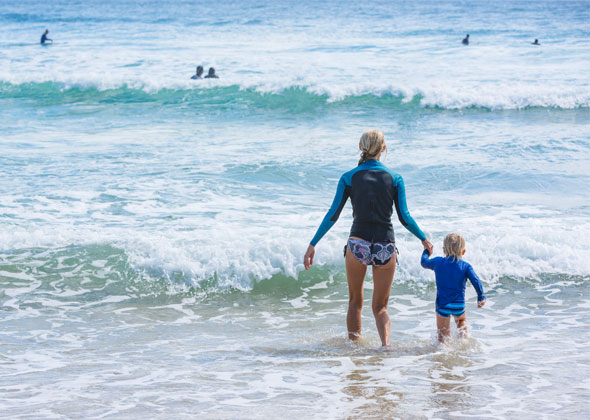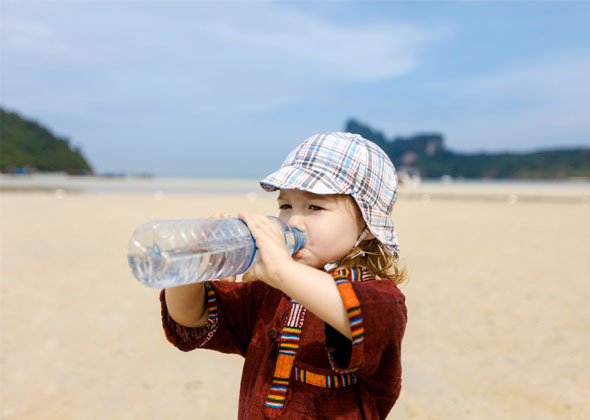Safety in the sun, sand & surf

Follow our beach safety tips to ensure your day at the beach with little ones goes just swimmingly!
Check the water quality You don't want to end up sick from your swim, so before you go, check out the Land Air Water Aotearoa Can I swim here? website for information on your favourite swimming spot. Councils monitor the water quality at popular swimming sites weekly during the summer months so the site is regularly updated. Signs about water quality and whether it's safe for swimming should be posted on the beach too. LAWA recommends you avoid swimming for 48 hours after heavy rainfall.
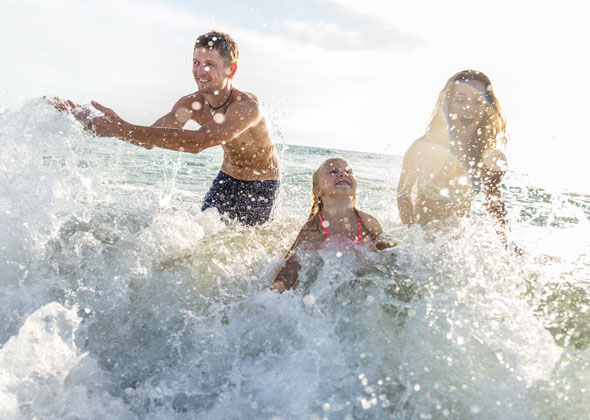
Stay close & keep watch Even when there are lifeguards present, it's important that you're within arms’ reach of your child in the water, even the shallows. A rogue wave can knock a toddler off his feet in a flash. It helps if you have two adults to supervise so you can take shifts, or just be two pairs of eyes. Remember if you're in your last months of pregnancy, you may not be able to move as quickly in case of emergency!
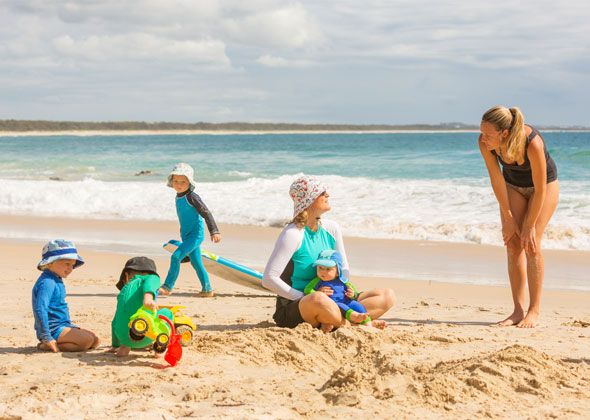
Wear sun protection Sunscreen should be at least SPF 30. SPF refers to how long you can be outdoors before you start to burn eg: 30 times longer than usual. Babies and toddlers burn easily and in fact, it's safest to keep your newborn-6 month-old out of direct sun. You can buy special sun-protective children’s wear, but otherwise choose darker colours and tight-weave fabrics. Top them off with a broad-brimmed hat or a cap with a 'neck flap' and they're good to go!
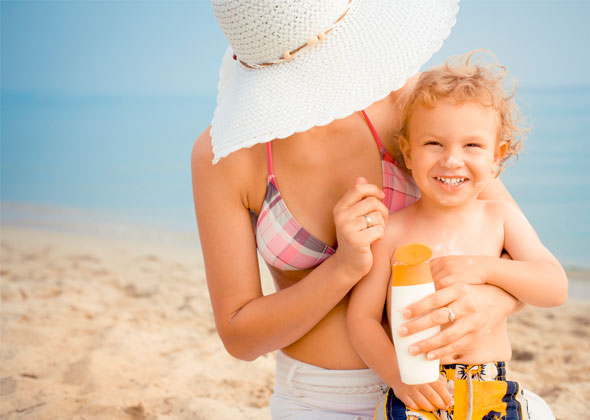
Sand is a fantastic toy for digging, pouring and building but it can easily get into little eyes and mouths, and tick to wet and sunblocked skin. It can also get incredibly hot to the touch, so it's a good idea to invest in some aqua shoes, or sandals to keep little feet from burning. Teach preschoolers not to throw sand, and to shake their towels off away from people.
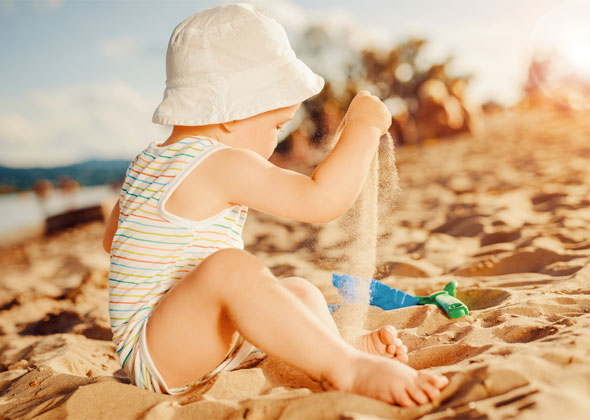
Be sensible about floatation devices Floating on a lilo or similar is fun in the pool, but not wise at the beach as they're easily carried out to sea or dumped by waves.
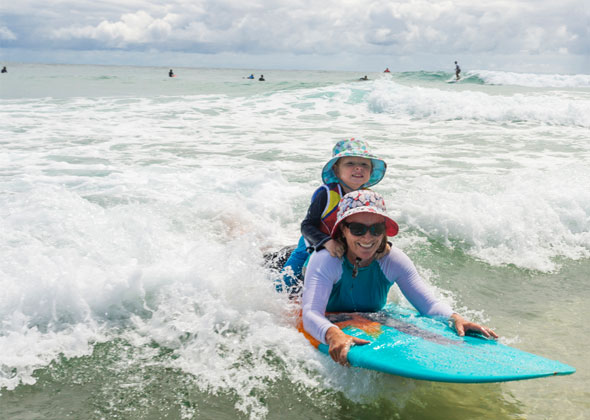
Rip currents are powerful channels of water that flow away from shore. If you go in the water with your little one, make sure you have good grip of his hand. If you get pulled out, don't try to swim against the pull of the current, instead swim parallel to the beach until you break free of the rip.
